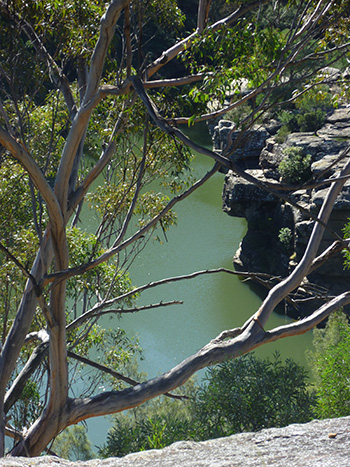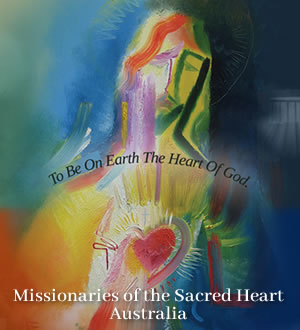 The words spoken by Jesus in today’s Gospel are among his most moving invitations to anyone who is feeling overwhelmed. He invites us to come and find rest in his love. His invitation is all the more moving when we read it in context. Jesus’ heart has gone out to the people who are harassed and dejected, like sheep without a shepherd, but he has just been rejected by the leaders, the very ones who are failing to care for the people and, in God’s name, are laying burdens on them that are too heavy to carry. Jesus invites us to come to him. We still have to suffer the burdens of life, but if we come to Jesus we will find that the yoke sits easily on our shoulders and we can carry the burden, for it is fitted to us, and Jesus is carrying it with us.
The words spoken by Jesus in today’s Gospel are among his most moving invitations to anyone who is feeling overwhelmed. He invites us to come and find rest in his love. His invitation is all the more moving when we read it in context. Jesus’ heart has gone out to the people who are harassed and dejected, like sheep without a shepherd, but he has just been rejected by the leaders, the very ones who are failing to care for the people and, in God’s name, are laying burdens on them that are too heavy to carry. Jesus invites us to come to him. We still have to suffer the burdens of life, but if we come to Jesus we will find that the yoke sits easily on our shoulders and we can carry the burden, for it is fitted to us, and Jesus is carrying it with us.
Today’s Responsorial Psalm consists of a few verses from Psalm 145. The whole psalm is an expression of delight in who God is. Even in the few verses selected for today, we hear the psalmist claiming that God is kind. Twice he speaks of God’s compassion – a word that in the original Hebrew language comes from the word for the womb. God is like a mother who feels every movement of the child whom she enfolds in her womb. The psalmist goes on to express his amazement at how long-suffering God is, putting up with our slowness to believe his love for us. By giving us existence, God has committed himself, like a father or a mother, to love us unconditionally. God, we are told, is ‘abounding in love’, ‘faithful’ and ‘gracious’. He ‘supports all who fall and raises all who are bowed down’.
Sometimes things happen in our lives and in the lives of those we know that help us to say Yes to what the psalmist is saying. But very often God’s love is not at all that obvious. There have been times when we have fallen and there seemed to be no one supporting us. This often seems to be the case with people we know, and when we look at world tragedies, how can we claim what the psalmist is claiming about God? Where is his evidence?
The psalmist is moved by the wonder of creation. People speak of the sense of God which they have by the sea or in the hills, or when they look into the eyes of a child. Scientists whose privilege it is to delve into the intricate mysteries of creation are often moved by the harmony and the inter-connectedness of things. Poets speak of the love that holds all things together. Saint Augustine was moved in this way. In his commentary on today’s psalm, he writes: ‘Look at the whole fabric of creation, all its intricate and ordered beauty, its harmony swelling to a crescendo from the simplest to the most intricate forms, only to descend again without interruption, splendid in its variation. All of creation praises the glory of God. It does so when we, contemplating it and finding it beautiful, praise God. The perfection of the earth is like a voice that is mute. Let us fix our gaze upon it and see its beauty. Let us look at the life constantly bursting forth, the energy, the wonder of the seed that gives birth to something so much grander than itself. Let us see it, and in our contemplation seek answers to our questions.’
Augustine continues: ‘Let us allow ourselves to be overwhelmed as we inquire. Let us discover the immense power of it all, its beauty and energy. We will come to realise that creation does not exist of itself. It points to its Creator. What we have discovered in it witnesses to the one who gives it all it is, and we are carried on to praise the Creator. And so, as we contemplate the perfection of this world, its very beauty responds: ‘I do not make myself. It is God who makes me!’ Let us observe this world. All its beauty surrounds us, and we are part of this creation! And what of the beauty of the angelic world which also envelops us? And what of the reign of God’s love? This we do not yet see in all its splendour, but we know to believe in it even though we see it so imperfectly. Believing in it, we long for it, and this longing enables us to bear all things. It is the grandeur of a perfection that certainly will be revealed. Not yet seeing God, we are in love with him, that we may possess him when we see his beauty’. 1600 years later, Augustine’s words still find an echo in our hearts.
Yet creation can also be cruel, and human greed and thirst for power can use creation to destroy. It is the same when we look at the events of our lives. In many of these we can see the hand of God, but in others there seems to be nothing of love: no beauty, no grace. So it is not enough to look at creation or at our lives. Everything is so ambiguous.
Herein lies the importance of Jesus: God’s word-made-flesh. Ultimately the statements of the psalmist are statements of faith. There is evidence for them. His statements are not childish make-believe and pretence. But they are statements of faith. Like Jesus we have to hold on in the dark to what we have seen in the light. Where there is no love we must, like Jesus, put love and we will find love.
Saint Therese of Lisieux expresses this well in a poem that she wrote on the feast of the Sacred Heart, two years before her death. She was reminiscing on the first and only time she saw the sea as a young woman. She remembers being deeply moved by the natural beauty, but she thinks of the empty tomb after the resurrection, and like Mary of Magdala, she weeps. Creation, for all its beauty, is like an empty tomb, if she cannot find there the one she loves. ‘One day, O my God, like Magdalen, I wanted so much to see and be close to you. My gaze searched the immense plain seeking to find the Master and King. My eyes caught the clear ocean wave, the star, the flower and the bird. I cried: ‘If I do not see God, O beautiful nature, you are for me only one vast tomb!’
This reminds us of another poem from the Irish poet, Joseph Plunkett, a martyr of the Easter uprising in 1916: ‘I see his blood upon the rose and in the stars the glory of his eyes,
His body gleams amid eternal snows, His tears fall from the skies.
I see his face in every flower; The thunder and the singing of the birds are but his voice – and carven by his power rocks are his written words. All pathways by his feet are worn, His strong heart stirs the ever-beating sea, His crown of thorns is twined with every thorn, His cross in every tree.’
What Augustine, Therese and Joseph are saying is that we can see what the psalmist sees, but we need more than our eyes to do so. We see with the heart when it is in touch with its longing, and when it is enlightened by faith. We are invited to this faith by Paul in today’s Second Reading. He speaks of the Spirit of Jesus making his home in us and giving life to our bodies. This, too, is the point of Jesus’ words in the Gospel. He wants us to see God as our Father, our Mother - the one who truly does ‘support all who fall and raise all who are bowed down’. And that we might do so he invites us to come to him and to learn from him to see God’s presence in our lives drawing us, through joy and pain, closer to his heart. In this faith we will find rest for our souls till we see him in all his beauty, face to face.
Michael Fallon msc



